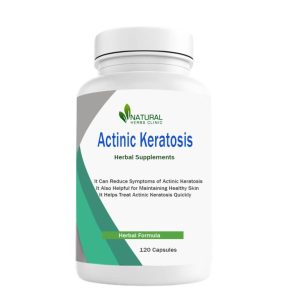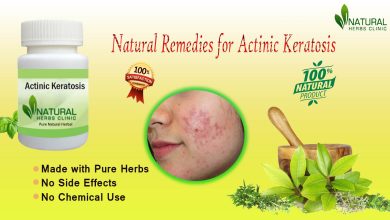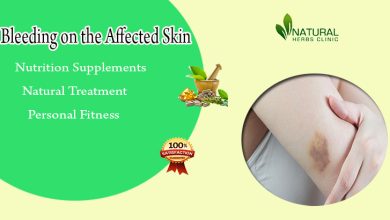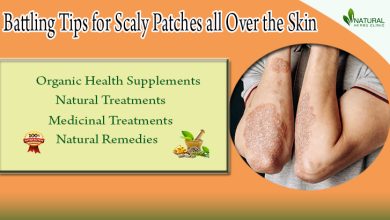Actinic Keratosis Self Treatment: Safe And Natural Solutions For Clearer Skin
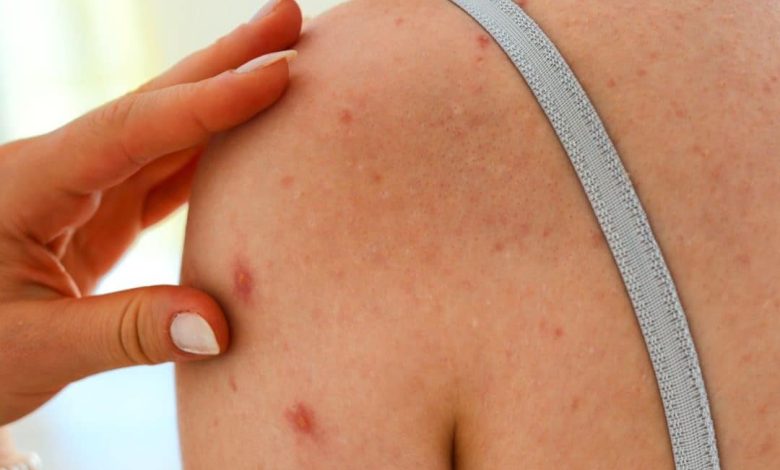
Actinic Keratosis (AK) is a common skin condition characterized by rough, scaly patches on the skin, often caused by prolonged exposure to the sun. While it’s important to have a healthcare professional evaluate and monitor this condition due to its potential to develop into skin cancer, there are several safe and natural self-treatment options you can explore to manage and possibly reduce the appearance of actinic keratosis. Guide you through effective self-care practices and natural remedies to help you achieve clearer, healthier skin.
Related Article; Home Remedies For Actinic Keratosis: Healing With Natural Treatments
Actinic Keratosis
Before diving into self-treatment options, it’s important to understand what actinic keratosis is. AK appears as rough, crusty lesions on sun-exposed areas of the body, such as the face, ears, neck, scalp, chest, hands, and forearms. These lesions are usually small, less than an inch in diameter, and can vary in color from skin-toned to reddish-brown. Early detection and treatment are crucial, as these lesions can sometimes progress to squamous cell carcinoma, a type of skin cancer.
Natural Solutions for Actinic Keratosis Self Treatment
While medical treatments like cryotherapy, topical medications, and laser therapy are effective, many people prefer natural and non-invasive methods to manage actinic keratosis. Here are some safe and natural solutions to consider:
Related Article; Bleeding on the Affected Skin: Quick Tips for Quick Relief
1. Green Tea Extract
Green tea is rich in polyphenols, which have been shown to possess anti-inflammatory and antioxidant properties. Studies suggest that green tea extract, when applied topically, may help reduce the size and number of actinic keratosis lesions. You can find creams and ointments that contain green tea extract, or make your own by brewing green tea, letting it cool, and applying it directly to the affected area with a cotton ball.
Related Article; Battling Scaly Patches All Over the Skin: Expert’s Prevention Advice
2. Apple Cider Vinegar
Apple cider vinegar is a popular natural remedy due to its antimicrobial and anti-inflammatory properties. For actinic keratosis self-treatment, dilute apple cider vinegar with equal parts of water and apply it to the affected areas using a cotton ball. Leave it on for a few minutes before rinsing off. Be cautious, as apple cider vinegar can be strong and may irritate sensitive skin; always do a patch test first.
3. Aloe Vera
Known for its soothing and healing properties, aloe vera is an excellent natural remedy for actinic keratosis. The gel from the aloe vera plant can be applied directly to the lesions to help reduce inflammation and promote healing. Use fresh aloe vera gel from the plant, or choose an organic product with high aloe vera content to ensure purity.
Related Article; Itchiness Around the Growths: Policy to Get Relief from Itchiness
4. Coconut Oil
Coconut oil has moisturizing and healing properties that can benefit those with actinic keratosis. Applying coconut oil to the lesions may help soften the rough patches and reduce irritation. It also provides a protective barrier on the skin, which can be beneficial for sensitive areas exposed to the sun.
5. Essential Oils
Essential oils like lavender, tea tree, and frankincense have anti-inflammatory and antimicrobial properties. These oils can be diluted with a carrier oil, such as coconut or jojoba oil, and applied to actinic keratosis lesions. Always dilute essential oils properly to avoid skin irritation, and consult a healthcare provider before use, especially if you have sensitive skin.
Related Article; Actinic Keratosis Nose Treatment An Overview of the Latest Strategies
Lifestyle Changes to Support Actinic Keratosis Treatment
In addition to using Natural Remedies For Actinic Keratosis, incorporating certain lifestyle changes can help manage and prevent the worsening of actinic keratosis:
1. Sun Protection
Sun exposure is the primary cause of actinic keratosis, so protecting your skin from harmful UV rays is essential. Wear broad-spectrum sunscreen with an SPF of 30 or higher, even on cloudy days. Reapply every two hours, and more often if swimming or sweating. Additionally, wear protective clothing, wide-brimmed hats, and sunglasses to shield your skin from direct sunlight.
Related Article; Why Treneton is the Best Natural Solution for Actinic Keratosis
2. Regular Skin Checks
Perform regular self-examinations to monitor the appearance of your skin and any changes in existing lesions. Early detection of changes can help prevent the progression to more serious skin conditions. If you notice new or rapidly changing lesions, consult a dermatologist for further evaluation.
3. Healthy Diet
A diet rich in antioxidants can help support skin health and repair. Incorporate plenty of fruits and vegetables, such as berries, leafy greens, carrots, and tomatoes, which are high in vitamins C, E, and beta-carotene. Omega-3 fatty acids found in fish, flaxseed, and walnuts can also support skin health and reduce inflammation.
Related Article; Take Advantages of Actinic keratosis Home Remedies to Treat Skin Bumps
4. Stay Hydrated
Proper hydration is essential for maintaining healthy skin. Drink plenty of water throughout the day to keep your skin hydrated and support its natural healing processes.
When to Seek Medical Attention
While natural remedies and lifestyle changes can help manage actinic keratosis, it’s important to consult a healthcare professional for a thorough diagnosis and treatment plan. If you notice that the lesions are growing rapidly, becoming painful, bleeding, or changing in color, seek medical attention immediately. These could be signs of a progression to squamous cell carcinoma, which requires prompt medical intervention.
Related Article; 10 Home Cure and Natural Remedies for Actinic Keratosis
Conclusion
Actinic keratosis self-treatment can be an effective way to manage and reduce the appearance of lesions using natural and non-invasive methods. By incorporating remedies such as green tea extract, apple cider vinegar, aloe vera, coconut oil, and essential oils, and adopting sun-protective habits and a healthy lifestyle, you can support your skin’s health and potentially prevent the progression of this condition. Always remember to stay vigilant and consult with a healthcare provider to ensure the best care for your skin.
By taking proactive steps and choosing natural solutions, you can work towards achieving clearer, healthier skin while reducing the risks associated with actinic keratosis.
Related Article; Tested Natural Remedies for Actinic Keratosis Treatment

